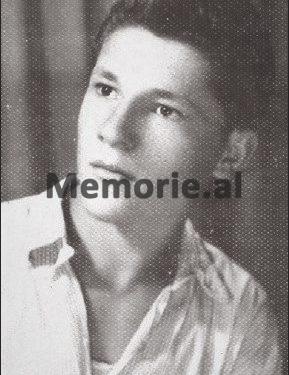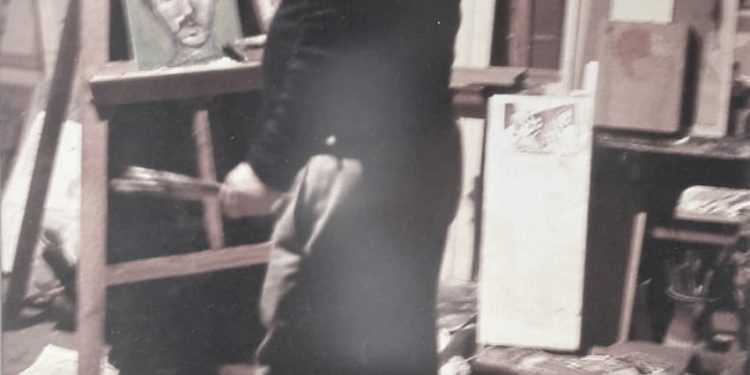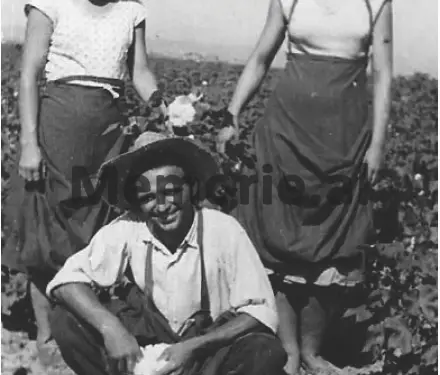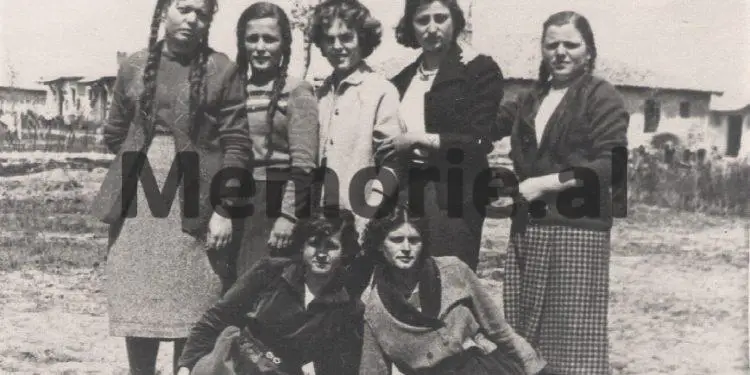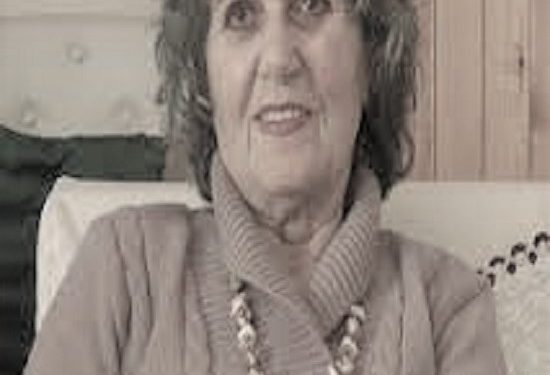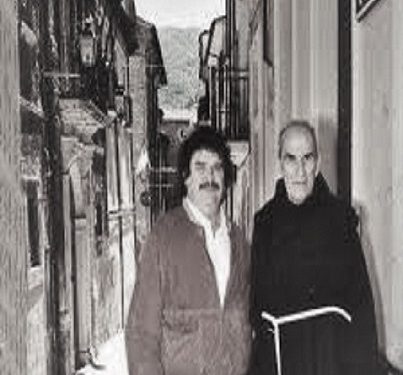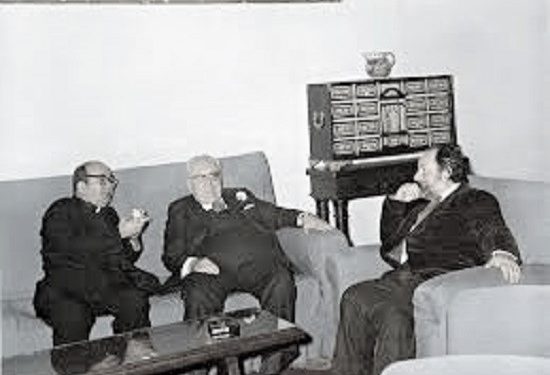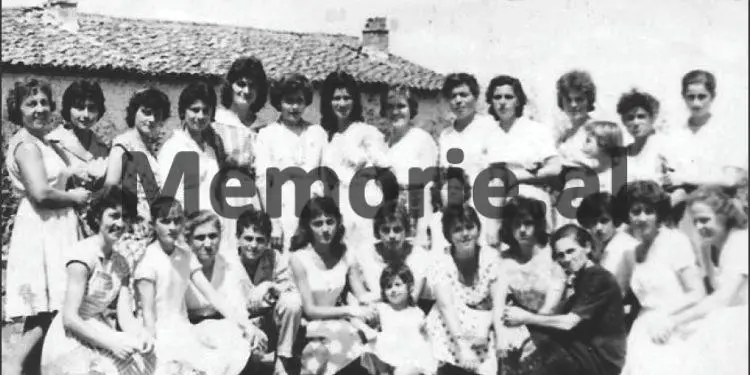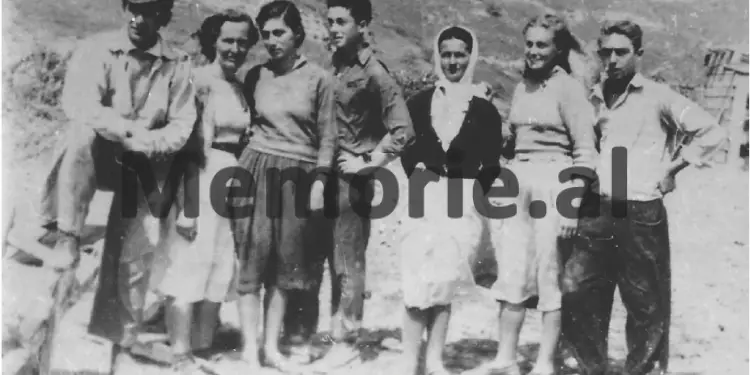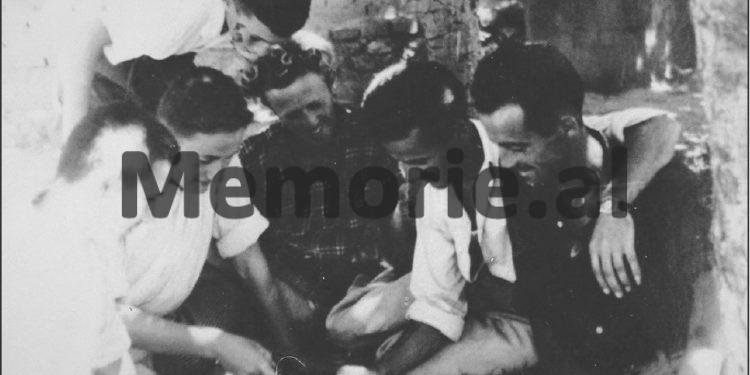Fatbardha Mulleti (Saraçi)
Part sixteen
Memorie.al publishes some parts from the book ‘Calvary of women in communist prisons’, by Fatbardha Mulleti Saraçi, (granddaughter of the famous former mayor of Tirana, Qazim Mulleti), whose family from 1944 until in 1991, he was persecuted by the communist regime of Enver Hoxha, where Fatbardha’s father, Haki Mulleti, a former senior state administration official since the 1920s, was imprisoned and interned by his family, until died in the hospital of Tirana, poisoned by the State Security. In her book ‘The Calvary of Women in Communist Prisons’, which is the fruit of several years of work, the author has masterfully described the unknown stories of some of the Albanian women and girls who suffered in prisons and internments in the dictatorial regime of Enver Hoxha, started by her mother, Pertefe Mulleti, and many others.
In addition to the above, the author Fatbardha Mulleti Saraçi, in her book, has described some of the tragic stories of some well-known families, mainly from Northern Albania (but also from Central and Southern Albania) such as; Gjonmarkaj of Orosh of Mirdita, Dine, Dema, Kaloshi, Ndreu, of Dibra, Pervizët from Skuraj of Kurbin, Miraka of Puka, Kola of Mat, Bushati, Pipa, Dërguti, Serreqi, Naraçi, Saraçi, Marashi, Gurakuqi, Çoba, Malaj , Vata, Deda, Vuksani, Kaçaj, Luli, Sokoli, Mushani, etc., of Shkodra and Malsisë e Madhe, Kupi, Merlika, of Kruja, Kërçiku, Mulleti of Tirana, Staravecka of Skrapar, etc., which were persecuted and were massacred in the most barbaric way by the communist regime of Enver Hoxha, parts of which will be published in the continuation of this cycle of articles by Memorie.al
Continued from the previous issue
Alexander Delia
Aleksandri tells about his family, who were interned, because their son Lin Delia, left Albania. It was 1948. Lin Delia as a child and youth was educated at the Franciscan College, in his hometown, Shkodra. With the end of the Second World War in Albania, the communist dictatorial system was established, which denied all rights to religious communities and decided to close all their institutions. Under this political pressure, Lin Delia decided to flee with his close friend, Zef Martini (later to be called Dom Ambroz Martini in Croatia). They crossed the state border in the village of Theth. After efforts in neighboring countries, he finally, in 1950, settled on Italian soil, where he studied several academies, and finally settled in the city he loved so much, Antrodoko.
In this city are preserved and exhibited with love and intelligence, 150 works of the Albanian master and every inch of his painting, remind you of the skin and aroma of Albania, his birthplace.
He painted the everyday man of the city where he lived, he has also placed the figure of the people where he came from and often times, he saw these people as figures of biblical saints.
It has become an indisputable value of art in Italy. The work of the painter Lin Delia, has the depth of looking at his portraits, the ability to capture every detail and being eternally Albanian, despite the long years of stay abroad. He did not have the right to come to his homeland to meet his parents, sisters and brothers.
Here is how Delia’s son, Aleksandër, tells the life of the family, since he was interned when he was 13 years old. The policeman of the neighborhood, Gjon Prendushi, came to the house and the mayor of the neighborhood, Pistol Saja, informed us to get the clothes, the bedding, that we were interned. We lived near the church of St. Kolli. A few hours later the truck came and took our whole family: Mark Delia (father), Luçije Delia (mother 45 years old) and children: Ndoka (16 years old), Aleksandri (13 years old), Angjelina (7 years old). We were interned, because my brother Lin, left communist Albania, for a free world and there he became a good painter. We were interned in Kuçova. We were there with families, like Caje Dërguti with the boys, Lajde Shllaku with the children, Margerita and Rroku. They kept us there for several months. We slept on the ground.
Then they sent us to Turan of Tepelena, the commander was Lieutenant Bexheti and Captain Syrjai. We were in exile with the family of Ali Kaceli (from Tirana), sister Vjollca, because her son had fled abroad. During the trip to Tepelena, the truck crashed a man and a woman and a baby of the Petrela family died.
In Turan there were big barracks, there we all slept on the ground, the entire internee’s women, old people, girls, and children. In August 1949, trucks came to be filled with Mirditors (after the assassination of Bardhok Biba, the communist leader). The food was made in pots; we were given some soup and a piece of bread. The Mirditors suffered very badly, they turned yellow and after three days they died. I saw them with my own eyes. They buried them during the day, while in the evening they exhumed them, so that their graves would not be known, in a word, they destroyed all evidence of the mass deaths of the Mirditors.
The event that impressed me the most was a football game. A 16-year-old boy named Muharrem Kaloshi also took part in the game; was tall and doable. During the game, the young boy got confused with the captain and he fell on the boy with his toe, but also the 16-year-old, returned the answer with his toe. They took the young 16-year-old boy, sent him to Gjirokastra, where they tortured him so much that he ended up. They brought him (brought) to die. “His grave is not known even today.”
“I am telling an episode,” continues Mr. Aleksandër (now 70 years old): – “In 1949 I was a student in the seventh grade. I shot birds (with slingshots), in the village of Dukaj, I met a peer of mine, and he took me to his house. On the arch of the stone door, was engraved: “Order a guest at the house of Abdurrahman Selim.” They gave me food; the lady of the house cooked a pie for me. They were good people.
The interned girls did not listen to the work, that the carrying of wood, the heavy load and the road to the mountain was very tiring for them. They were Elizabeta Marku, Hedije Repishti, Suzana Topalli and others. They punished the girls, isolated them in the offices, and left them without food. I, – continues the story Mr. Alexander – I was very agile (the guards called me “wild redhead”), secretly (secretly) the guards came in and put the bread in the place where the girls were kept isolated.
The guard followed me, I managed to hide, I stood for three days on the beam of the silo, until Captain Syrjai caught me and sentenced me. A painful event that I always remember was: – They left us without food for three days, on the fourth day they brought us pennies. I ate so much that I was so hungry that I could not determine the extent, I did not know where I was… later I was found lying in the snow.
We were many families in exile, such as: the Topalli family, mother Marije, Suzana (18 years old) and boys 10 and 8 years old, the family of Kole Shylit (because his brother had left), with his wife Dydë Shyti and children: Zefi (13 years old), Leka (16 years old), Neta (14 years old), Lajde Shllaku with children Margerita and Rroku, Luka family.
After 20 years I met in Shkodra with my sixth grade friend from Tepelena, Sabaudin Shehu, he was a high agronomist…! We hugged, it was recognition from exile. The class struggle followed us even after exile. Years passed, I became a barber, my sister Zina married Rrok Gjuraj and had a son- Bepin Gjuraj, who was a talent in painting, looked like his uncle, Lin Delia, who was a well-known painter in Italy.
The boy competed in 1980 to continue his studies at the Institute of Arts, but was not given the right to study, because he was the grandson of Lin Delia. He worked at the Artistic Enterprise and his works were wonderful. He was taken as a soldier, but his life was cut short in his youth, the hand of a farm guard, shot him with a gun and killed the artist. The young boy died on the spot. The guard killed him in vain, he was autopsied and in the stomach of the young painter, no grapes were found, not even a bunch of grapes, as the guard claimed. The guard killed him in vain and the most ridiculous thing, the People’s Court of the city of Shkodra, sentenced the criminal to only three years in prison (because he was close to the red caste), while the young boy was declassified “.
The dictatorship continued in our homeland, whiles the painter Lin Delia, and was affirmed for days more and more as a talented painter. Antrodoko, was the place that most closely resembled the birthplace of the painter, in the city museum “Lin Delija- Carlo Cessi” is the return of Albania, in his painting. This makes Albania a top diplomat and vice versa, Albania a well-known country.
Sabri Dërguti
It is the story of a young man, of the honorable Dërguti family, whose youth went into exile. Mr. Bush (Sabri) Dërguti, born in Shkodra, in 1930. His father Hafiz Dërguti (Muslim cleric) was arrested in 1947, for allegedly taking part in the Postriba Movement. Without sentencing, they wanted his death, says Mr. Bush. -In the summer cinema his trial took place. He denied any of the allegations. He was sentenced to 101 years. His sentence was reduced to 10 (ten) years, which he served in a large prison. Asht prayed in prison even though the guards stopped him, humiliated him, and sentenced him to solitary confinement in the dungeon, two months without a meeting, without food.
He was sent to Burrell Prison. He did not accept the communist intrigues, which wanted to confuse them with the Catholic clergy. In 1948, the two sons of the Dërguti family, Hamit and Fejzi (24 and 26 years old), were not treated well by the communists, they were sent to the most difficult jobs, seeing that their lives had not come to their homeland, they were left, crossed the border with great difficulty.
For this reason, the communist red caste, exiled the mother of the boys and the youngest son of the family.
Mr. Bush, today an old man, with a great memory, who continues to work, is always on the move, tells about his life: “I was 14 years old, when the communists came to power, they treated us very badly, that my family was a religious family and my father was anti-communist. We were deported in 1948, me and mother Caje, the family Marije Topalli with her daughter Suzi and children Ferdi and Koleci (10 and 8 years old) and Mr. Nush Topalli, because his son Hil Topalli left. “We were five families together.”
He tells of his travels, in various internment camps, suffering, fatigue, torture… The first internment, – says Mr. Bush – was in Berat, they kept us there for six months, then they sent us to Turan in Tepelena, we lived in tents , we were forced to transport the pillars, I sent them to the river Benca. They sent me to Gramsh, while my mother Caje left me in the Tepelena camp, then in Lozhan in Korça, we opened the road, we were with the Chams. They guarded us with soldiers. We had Lieutenant Lela Godon, who beat many of the internees, especially the Chams. At night they would come to work, unload the cars with iron poles, which they wanted to build a bridge. A soldier was guarding an internee.
I was sent to Porto Palermo, between Himara and Saranda. The castle was built in Roman times, was full of dungeons, and was a place of torture (as such it was used at all times). They gave us only 200 gr. bread and marmalade, which was like brick, margarine spoiled (5-6 years old). There in Porto-Palermo, we were 400 (four hundred) interned, where with 5 kg. Beans we cooked in 2-3 cauldrons, for all the internees …, a juice bowl with a few legume grains.
Where we were staying, water was dripping from the concrete ceiling, water was dripping and quilts, clothes, and clothes were wet. The water was salty. In Porto-Palermo many old people were blinded by the salt water. The captain kept telling us, “We will make you die inside.” One day, I was young, but very upset, I said to the lieutenant: “You eat cake, and we eat bricks”! The captain punished me for speaking, put me in the church, which had been turned into a pig stable, and was all muddy, leaving me there for 48 hours.
They sent for inspection a team of Army Security officers, led by Captain Emin Bekteshi. I went forward (because he was from Shkodra), I cried but he also cried from the pain.
– What about you? – Captain Bekteshi addressed me.
– I was interned because my brothers ran away. Do us medicine, or kill us, or take us to another camp!
This captain and his team realized the departure of the internees from Porto-Palermo. The commander here was Pascal Antoni, he said to Bardha Markagjoni: – “Do not think that a pumpkin comes from the sea when it is taken”. She replied, “No, I do not know.” Our whole life was isolated. The dungeons of the castle had places like windows, with bars. We were guarded by two motorboats and many guards. One night an Italian boat with boards came, the District Security came. In the morning neither the boards nor the Italians were seen. They were not seen where they were sent?!! They sent us to Himara to pick olives. In 1952-‘53 I was sent to Tepelena, where I found my dear mother Caje, tired; they had treated him very badly, the old man (he was close to 70 years old), they had put him in the toilet clean.
In Tepelena, all the internees from Dukagjini, the Shaljans, the Mirditors, were assigned to cut wood, the rest of us were transported from the mountain, taken down, housed in piles. We were supervised by police officers led by Captain Selfo. Each of the internees (men and women) was forced to load 30-40 pieces of wood, one by one to send to the officials, to heat the city of Tepelena. They sent me to Tirana, to Lapraka to make bricks, they asked us for two rates a day (to make them night and day without interruption). Then, back in Tepelena, we were fifteen boys, he made wood for the people. We all worked for free and were given only 600 gr. bread.
It happened to me that I went to the toilet on Saturday and Sunday, not to go to work, because I was not able to work.
Director Xhaferr Pogaçi and Captain Syrjai, took us to Bënçë for wood, where we lived only in a hut (tent), at the top of the mountain and only once a week, we had the right to go down to Tepelena to be cleaned. We were all full of lice.
We had the stream 500 m away, where the piles of wood were transported. During transport a pole weighing 1kv. a body …, made five times out of water…, we had to cut them. Just because I shouted announcing to Bardh Kupi (who was an internee) that if the pillar came to you, there was a risk that it would fall and boil under it, the guard (captain) beat me, why I was defending my friend. He beat me, turned to me and said: – Why did you protect him??
I found myself unable to work, I injured my leg with viburnum, I put its leaves on my leg, for an hour and I made the wound, my leg was swollen. They took me by mule, sent me to Tepelena, did not treat me, nor did they have a nurse or any kind of help.
The group of young people was sent to Çorovodë, Skrapar. I, Ferid Daca, Dom Nikolë Mazrrekun, Gjovalin Vasia and many villagers from the North and South. The head of the Skrapar branch (Çorovodë) was Tomorr Beqari, he took revenge on us, tortured us at work. They demanded us from two norms. We did the construction of the Interior Ministry building and the Party Committee.
Again in Tepelena, then we were sent to Plug, Savër of Lushnja, where there were internees, deportees and displaced. Farm work, we had Captain Hyseni. We had no right to cross the bridge, we were not provided with a passport.
After 7 years of exile I was released, and then I was 25 years old. I came to Shkodra, I went down to Parrucë, I have no day to go home. I found the family in misery, everything was nationalized for us, the house, the car, the shop, the lands, the sheep…, in a room we lived seven people…, and the house was occupied by police.
In 1979, the house collapsed in an earthquake. We stayed homeless for 6 months, like the roof was the sky. The plan fell on the house; we took mother Caje, now 90 years old, on the main road. We were not allowed to carry anything, we were always insulted, and especially our father was insulted. I worked all kinds of jobs. Our life under communism has been just torture. This is how he ends the story of the pilgrimages of his life in exile, followed by Mr. Bush Dërguti. / Memorie.al




